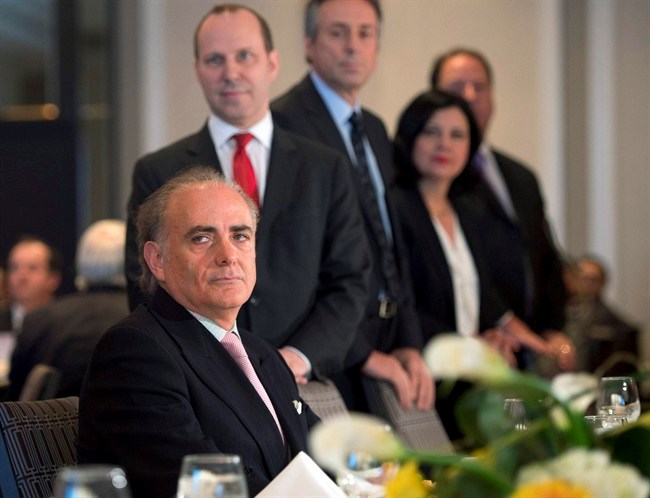MONTREAL - Air Canada's chief executive took aim at Canadian airport fees Tuesday, likening them to "sin" taxes that add to ticket costs and contribute to driving almost five million Canadians to use U.S. border airports.
"Airport improvement fees, airport rent, security surcharges, navigation fees and the list goes on, all serve to make airline tickets in Canada more expensive," Calin Rovinescu said in a speech to the Metropolitan Montreal Board of Trade.
As a result, Quebec's fastest growing airport is located in Plattsburgh, N.Y., just over an hour by car from Montreal, Rovinescu told his audience. Montreal is served by Pierre Elliott Trudeau International Airport.
Rovinescu said higher taxes and fees in Canada represent about $1 billion more than if his Montreal-based airline operated as a U.S. carrier with the same volume of traffic.
The Canadian Airports Council has estimated that the leak of passengers to U.S. border airports in 2010 meant a loss of $1.1 billion to gross domestic product as well as 9,000 jobs and more than $500 million in employment income.
And Rovinescu noted that the World Economic Forum ranked Canada 125th out of 139 countries for ticket taxes and airport charges in 2011.
Reports by the Senate and the Conference Board of Canada have also found that Canadian fees and taxes are uncompetitive, Rovinescu said in his speech.
Meanwhile, Rovinescu said he was confident that battery problems plaguing the new Boeing 787 Dreamliner will be resolved quickly.
Air Canada (TSX:AC.A) still expects to begin taking delivery of the first of 37 Dreamliners it has ordered starting in 2014.
"The attention that the 787 has received in the past few weeks as a result of a number of technical problems, for me, just reconfirms the wisdom of avoiding the 'first mover' step and waiting to take delivery of a new aircraft model only after the initial problems are fixed."
Currently all 50 of the Dreamliners that Boeing has delivered to airlines so far have been grounded as authorities probe overheating problems with the plane's lithium ion batteries.
In addition to the grounding, Boeing has halted deliveries of new planes until it can address the electrical problems.
The 787 uses composite materials instead of metals and Rovinescu says the aircraft will provide "cost efficiencies" of more than 35 per cent.
Rovinescu also said he expects Air Canada's new low-cost carrier Rouge to eventually grow to up to 50 aircraft.
Rouge will start by taking over some existing routes from Air Canada as well as adding its own new routes to destinations such as Venice and Edinburgh.
Rovinescu said over the next year that Air Canada will hire about 1,100 new employees in different positions across the airline.
Note to readers: This is a corrected story. An earlier version misstated the name of the Canadian Airports Council.



